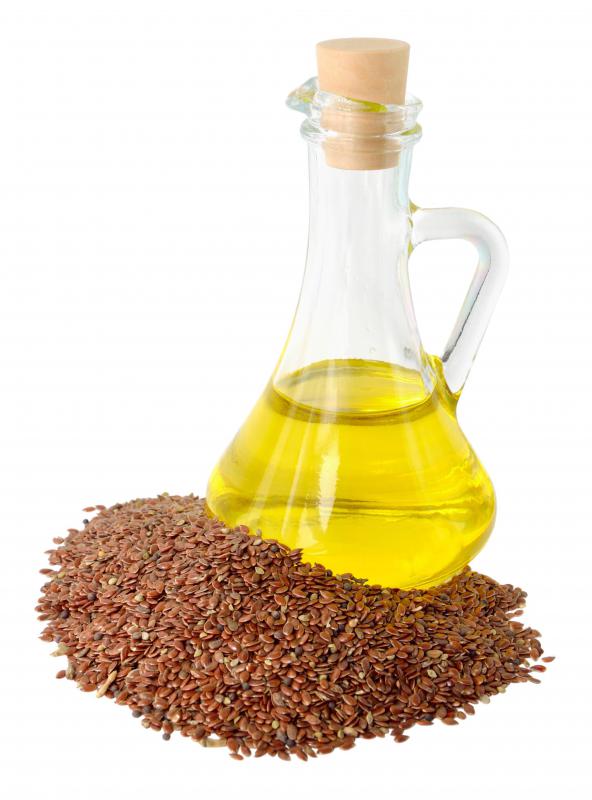At WiseGEEK, we're committed to delivering accurate, trustworthy information. Our expert-authored content is rigorously fact-checked and sourced from credible authorities. Discover how we uphold the highest standards in providing you with reliable knowledge.
What is the Difference Between EPA and DHA?
Eicosapentaenoic acid, also known as EPA, and docosahexaenoic acid, also known as DHA, are two types of essential fatty acids found in omega-3 fats. Both EPA and DHA are found in fish. The human body needs EPA and DHA to function properly, although these two acids have slightly separate functions. DHA promotes brain health from an infant's development in the womb through adulthood, and EPA may be able to reduce risk of heart disease or ease depression symptoms.
Many people do not get enough EPA and DHA in their diets. The human body can produce a small of DHA, but it does not make nearly enough. The body cannot produce EPA at all. A person can get added DHA and EPA by eating fish or by taking a fish oil supplement. DHA also can be found in some types of seaweed. EPA and DHA can also be produced by alpha linolenic acid, or ALA, an omega-3 found in flax seeds.

The function of EPA and DHA is slightly different. DHA helps infants develop sight and a properly functioning nervous system during their first six months. Pregnant women should take DHA supplements to make sure their baby stays healthy. Continued intake of DHA helps the brain and nervous system function properly throughout a person's life.
EPA also helps with brain function, but may be more effective at reducing a person's risk of heart disease and symptoms of inflammatory conditions. Other health benefits may come from EPA alone. In some studies, it has been shown to lessen depression symptoms, so EPA may help anti-depressant medications work better. It can also be used to treat mood disorders such as borderline personality disorder.

Both EPA and DHA can be effective at reducing a person's blood pressure and lowering his triglyceride levels. The fatty acids can help prevent a person from getting heart disease by keeping his blood pressure and cholesterol levels in check. DHA and EPA can prevent plaque from forming in the arteries and lower a person's risk of blood clots. Omega-3s can also benefit a person who has already had a heart attack by reducing irregular heart beats
Women going through menopause may find that EPA helps reduce their symptoms. EPA and DHA may also reduce menstrual cramps and other symptoms of PMS. To get the benefit, a woman should take a fish oil supplement regularly.

The best source for DHA and EPA are fish such as anchovies, salmon, and tuna. A person should eat fish two or three times a week in order to get the omega-3s she needs. Foods such as walnuts or flax seeds that contain ALA are also a source for essential fatty acids, since the body can turn ALA into DHA or EPA. The body can also convert DHA into EPA if it needs to.
AS FEATURED ON:
AS FEATURED ON:















Discuss this Article
Post your comments